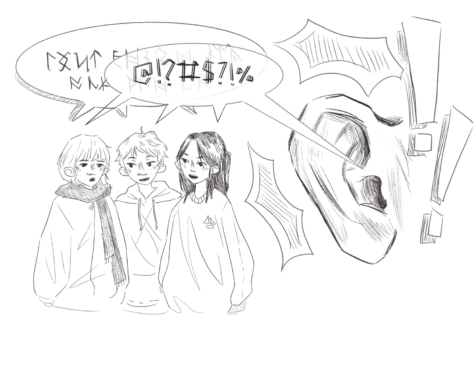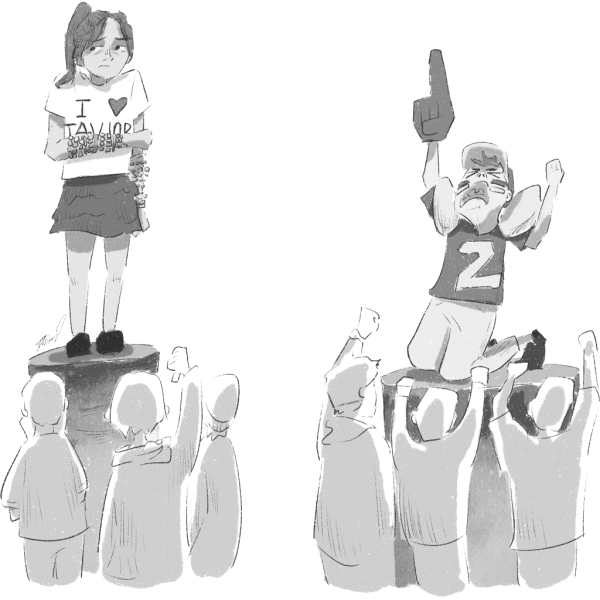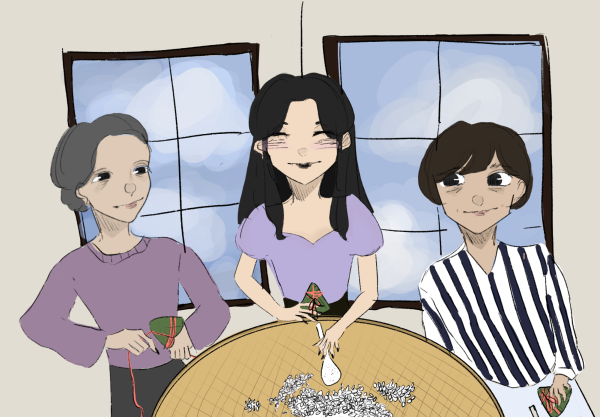Mistranslating Mandarin
Misinterpretation creates fear of speaking native language
February 18, 2022

Chances are, if you’ve seen me around campus, you have overheard me speaking in Mandarin Chinese to some of my friends. However, if you’ve spoken to me in Chinese directly, you may have noticed that my speech is intermittent, staccatoed with awkward rests and pauses as I struggle to conjure the perfect word to express my thoughts.
More often than not, I tend to shy away from using specific phrases when speaking Chinese due to the homophonic phrases that are frequently associated with them. Most notably, the common colloquialism “那個 (nà gè/nèi gè),” is synonymous with “there” or “that” when referring to inanimate objects, but is also used as a filler word in Chinese, equivalent to “like” or “um” in English. Its pronunciation can sound reminiscent of a racial slur from an outside perspective, and my aversion against using the word has largely stemmed from the admonishment I’ve received from non-Mandarin speaking peers who have overheard me.
A song that has been immensely popularized, particularly in the United States, for its usage of the Chinese filler word is Wowkie Zhang’s “Sunshine, Rainbows, White Pony.” Disregarding the egregiously colorful set design and psychedelic visual effects, an overwhelming amount of the attention Zhang’s song has received is due to the chorus, in which he repeatedly uses the aforementioned phrase. The YouTube comments on the video are largely jokes made at the expense of the singer by English-speaking commenters, sarcastically poking fun at the lyrics.
While the comments are primarily made with the intent of being humorous, the sheer magnitude of public attention Zhang received perpetuates the idea that usage of the phrase can be boiled down to a simple joke. The words themselves carry no malicious intent, and the negative interpretation is only assigned to it by people who choose to sensationalize the situation and assign it a derogatory meaning.
Further, the sensationalization of words that sound similar to vulgar phrases in other languages has become a trending topic on platforms like TikTok, where users will often post themselves lip-synching to the chorus of “Sunshine, Rainbow, White Pony” as a means to circumvent the repercussions of saying a slur in English, often instigating heated debates in the comment sections.
Ultimately, the TikTok trend stemming from Zhang’s song have only garnered more attention to the filler word and its similar pronunciation to a racial slur than warranted and has now piqued the awareness of those who were previously unaware of the phrase. Shining more light upon a meaningless word has heightened sensitivity to it, which only exacerbates the need for Chinese-speaking people to censor their speech in public areas, simply because their words can be misinterpreted. Moreover, the increase of anti-Asian hate crimes during the COVID-19 pandemic made the innocent act of speaking Asian languages publicly an uncomfortable one, when in reality speaking non-English languages should not be a cause for marginalization or alienation.
In fact, just the other day as I was walking home, I overheard another girl speaking Chinese and using the phrase as she struggled to recall intricate details of a story she was recounting to her friends. She was then berated by a group of students who followed her, laughing and mockingly asking, “What did you just say? Did you really just say the n-word?”
While it’s encouraging to know that the student body at Westview, the people I’m surrounded by, or netizens consuming foreign content are consciously aware of and correcting others for using insensitive language, the jarring lack of context on which these accusations are made is upsetting. Further, the fact that I’m most frequently called out by people who are not actively participating in the conversation at hand further illuminates the fact that their comments lack context, and the admonishment of people speaking foreign languages on the basis that the words they use sound insensitive in English is an immensely Eurocentric mindset.
Speaking in a language where variations in tone, diction, and pacing clearly display a contrast to English, I feel as though it is reasonable to expect others to recognize that the remotely similar pronunciations of the words I’m using are in a vastly different context, and to expect others to refrain from concocting groundless accusations is a right I’m entitled to.






